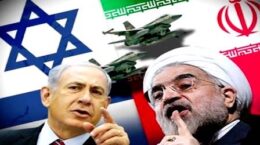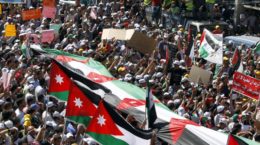Jordan faces challenges at the international, regional and domestic levels. There is a significant shift underway in the conduct of international politics, where international relations are increasingly based entirely on economic interest. A country like Jordan, totally dependent on its allies, needs to revise its position and approach based on these changes as the underlying value of its perceived political alliances have changed completely. There is limited leverage to be gained from political advantage, as such Jordan needs to innovate and create new opportunities from new alliances based on economic pragmatism.
Jordan’s geographic position has been used to its advantage through political positioning for many years and now the focus must be shifted to use that location for economic advantage by engaging with its neighbors and using shared borders for shared economic interest. This requires a serious revision of Jordanian foreign policy as it faces growing obstacles in the region.
Restoring relations with Syria should be at the top of the agenda for Jordan, as re-building Syria represents a golden opportunity for growth in the Jordanian economy. However, this opportunity will not be realized without a political maneuver that demonstrates Jordan’s serious intentions toward Syria. Jordan and its officials must change their narrative and reposition as those who are currently opposed to the Syrian government must reconsider their positions and recognize that Jordan’s national interest is more important than personal enmities and histories.
The same approach needs to be taken towards Iraq, as Jordan needs much deeper relations with the Iraqi regime. There are countless opportunities for strategic projects in Iraq that can form the basis for economic growth in Jordan, but it requires a reevaluation of Jordan’s approach and vision going into the future.
Relations with Saudi Arabia must also improve, not just because of the shared border but because KSA’s economy is a regional leader and therefore fundamental to the growth of Jordan. As part of this, relations also with Israel must be revised given there has been a peace treaty in place since 1994.
It is important to realize that hypocritical populism and propaganda does not serve the national interest nor build opportunity and growth for the future of Jordan. We must have a clear vision for the future with a road map and concrete steps that overcome the problems Jordan currently faces while also building growth and prosperity for the future.
Domestically Jordan needs a clear plan for economic development. This requires strategic alliances that can help Jordan to build key projects in the fields of transportation, energy and agriculture. The lack of an efficient transportation network and infrastructure have pushed people to leave their places of origin and into the capital. Jordan must build the necessary infrastructure to equalize population distribution to position itself for economic growth, create new opportunities for the population and grow existing industries while building new ones.
Jordan needs a complete rethink and revision of its vision for the future and state a clear agenda with policies that will achieve those goals, across domestic and foreign policy. This needs a new approach to how policies and positions are formed, especially foreign policy as the regional and international landscape is shifting. If Jordan does not reposition and build new alliances based on mutual economic interest in order to drive domestic economic growth and development, then it will be left behind and the people will suffer.
Dr. Amer Al Sabaileh




